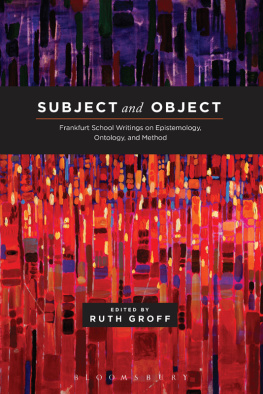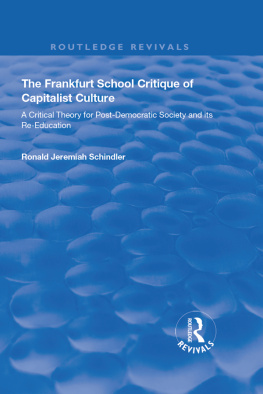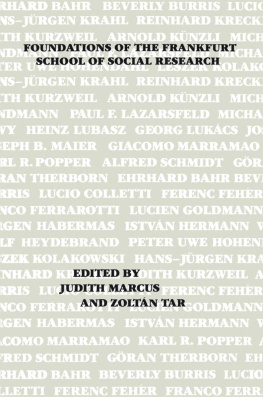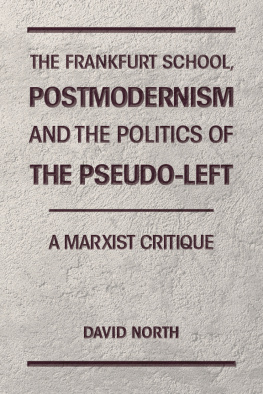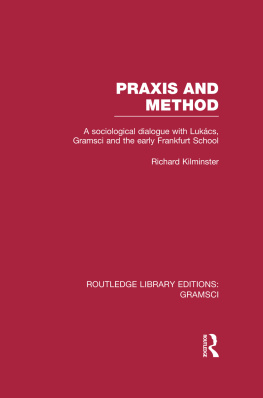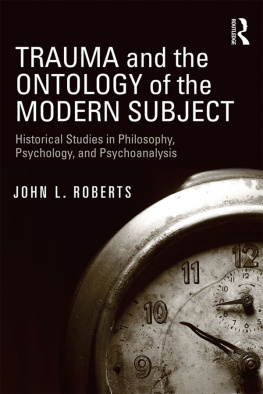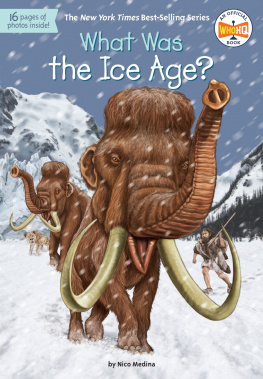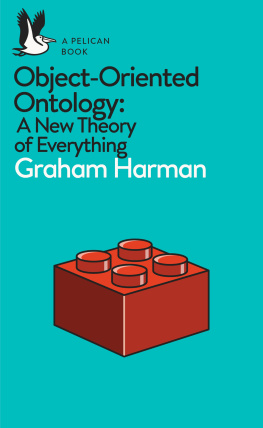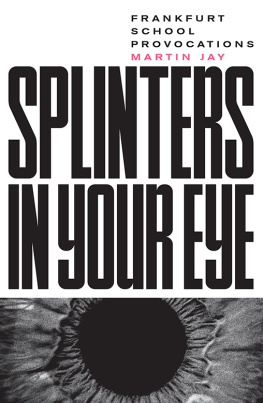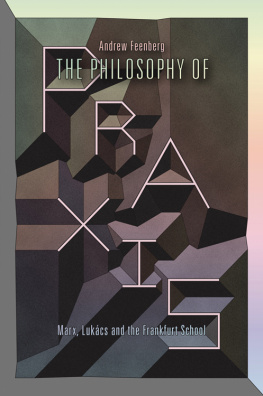Ruth Groff - Subject and Object: Frankfurt School Writings on Epistemology, Ontology, and Method
Here you can read online Ruth Groff - Subject and Object: Frankfurt School Writings on Epistemology, Ontology, and Method full text of the book (entire story) in english for free. Download pdf and epub, get meaning, cover and reviews about this ebook. year: 2014, publisher: Bloomsbury, genre: Religion. Description of the work, (preface) as well as reviews are available. Best literature library LitArk.com created for fans of good reading and offers a wide selection of genres:
Romance novel
Science fiction
Adventure
Detective
Science
History
Home and family
Prose
Art
Politics
Computer
Non-fiction
Religion
Business
Children
Humor
Choose a favorite category and find really read worthwhile books. Enjoy immersion in the world of imagination, feel the emotions of the characters or learn something new for yourself, make an fascinating discovery.
- Book:Subject and Object: Frankfurt School Writings on Epistemology, Ontology, and Method
- Author:
- Publisher:Bloomsbury
- Genre:
- Year:2014
- Rating:3 / 5
- Favourites:Add to favourites
- Your mark:
- 60
- 1
- 2
- 3
- 4
- 5
Subject and Object: Frankfurt School Writings on Epistemology, Ontology, and Method: summary, description and annotation
We offer to read an annotation, description, summary or preface (depends on what the author of the book "Subject and Object: Frankfurt School Writings on Epistemology, Ontology, and Method" wrote himself). If you haven't found the necessary information about the book — write in the comments, we will try to find it.
Ruth Groff: author's other books
Who wrote Subject and Object: Frankfurt School Writings on Epistemology, Ontology, and Method? Find out the surname, the name of the author of the book and a list of all author's works by series.
Subject and Object: Frankfurt School Writings on Epistemology, Ontology, and Method — read online for free the complete book (whole text) full work
Below is the text of the book, divided by pages. System saving the place of the last page read, allows you to conveniently read the book "Subject and Object: Frankfurt School Writings on Epistemology, Ontology, and Method" online for free, without having to search again every time where you left off. Put a bookmark, and you can go to the page where you finished reading at any time.
Font size:
Interval:
Bookmark:
Subject and Object
Frankfurt School Writings on Epistemology, Ontology, and Method
EDITED BY
RUTH GROFF

For Asher Horowitz, with whom I first read critical theory, and for my dear friend Kurt Tauber, sharp as a tack at 91.
Critical theory can be daunting. Confronted by dense texts steeped in German idealism, aesthetics, psychoanalytic theory, and Hegelian-Marxism, many a reader has recoiled. Yet, critical theory mattersnot least because it speaks powerfully to the most urgent of philosophical and political questions: reason, truth, and freedom. However, because our society represses the struggle toward these, because it collapses their genuine meanings into their opposites, critical theory needs a vocabulary and a conceptual form that appear strange to the prevailing patterns of thought.
This is why critical theory seeks to estrange us from everyday appearances. The pursuit of truth requires that thought should be alienated from the reigning untruth (and the forms of thought upon which it rests), just as the movement toward human freedom can only be accomplished via a rupture from our current unfreedom. To step into the texts of critical theory is thus to enter a conceptual universe that deliberately resists integration into traditional categories of thought. And therein reside both its importance and its strangeness. For only in turning against the dominant ways of thinking might critical theory open a space of freedom.
To be sure, the space of freedom to which radical thought aspires is fleeting and precarious. Yet, this simply testifies to the limited powers of any intellectual practice that remains disconnected from a mass movement to change the world. Indeed, critical theory lives in the shadow of the failure of such movements. It moves in the space of a defeat whose finality it resists. This is why it persists in a form that appears philosophical as much as it seeks to transcend philosophy in the direction of an emancipatory social theory and practice.
But move within the orbit of philosophy it must, not least because philosophy in its most genuine sense preserves the aspirations of reason, truth, and freedom. At the same time, philosophy is implicated in suffering and oppression. It subsists on the division between mental and manual labor, and it has been enlisted in the service of domination and empire. For this reason, critical theory turns philosophy against itself, hoping that the sparks generated in this collision might illuminate new paths for thought and praxis. And here we encounter dialecticsthe very source of critical theory. For dialectics, as several texts in this wonderful collection remind us, lives in the space of negative thinking. Dialectics operate in the very act of thinking against ourselves, of estranging ourselves from the modes of thought and forms of life that are inimical to truth and freedom. Yet, critical theory resists the imperial pretensions of philosophy, its grandiose claim to generate a transcendence of that which is via the act of thinking alone. Dialectics in critical theory thus remain materialist in inspirationoriented to the transformation of our very forms of social life as the only register in which transcendence is possible. So, in seeking tendencies that point beyond the existing state of affairs, in excavating possibilities that the dominant social order and traditional theory repress, critical theory persists through negation. Thus, while theory cannot pose a positive program, it can nourish resources of hope that live in the very activity of thought resisting the prevailing forms of domination.
That is what this stunning collection of texts implores us to do. Not only has Ruth Groff chosen wisely by bringing together some truly outstanding contributions by the first generation of Frankfurt School theorists, she has also provided strikingly clear and insightful introductions that situate each text, not merely with respect to its composition, but also in relation to contemporary theory. Readers curious as to how critical theory differs from the likes of pragmatism, skepticism and neo-Aristotelianism will discover dazzling gems sprinkled throughout her presentations. Moving between concerns with questions of epistemology, ontology, and method, Groff gives us critical theory in action, shifting across theoretical idioms in order to demonstrate the power of negative thinking. That power, she reminds us, lies in the enduring resources these texts provide for a kind of thinking that keeps alive the promises of reason, truth, and freedom.
There is nothing like editing a Frankfurt School reader to make one feel very small.
Horkheimer, Adorno, and Marcuse were the silent intellectual giants of my undergraduate philosophical training at Swarthmore College. The Critical Modern Social Theory seminar, then taught by Braulio Munoz, was the one that I never got to take. By the time that I had acquired what my youthful self believed to be the minimum necessary background to do so, it was time to graduate. In a real sense, I went on to graduate school in order to finally get to take a class on the Frankfurt School. I was fortunate that I had, indeed, been sufficiently prepared by several truly legendary teachers: Braulio Munoz (who also taught Modern Social Theory), Hugh Lacey, Ken Sharpe, and Rich Schuldenfrei. I was equally fortunate to have studied the material for the first time, when I finally did, with Asher Horowitzto whom, along with my dear friend Kurt Tauber, this volume is gratefully and affectionately dedicated.
In more recent years I have talked about the work of the Frankfurt School with two wonderful interlocutors in particular, in addition to Asher: David McNally and Christian Thorne. David has generously agreed to write a short Foreword, and Christian was prepared to re-translate Subject and Object had I been able to secure the required rights from the German publisher. I want to thank both of them for their friendship and invaluable intellectual company. I would also like to thank Catherine Kellogg for sharing her syllabus with me when I first undertook to design my own Frankfurt School seminar. Catherines syllabus influenced mine, and it was when I was creating that first course kit that I conceived of this volume. Marie-Claire Antoine, the original acquisitions editor for Continuum, encouraged the proposal and delivered the contract. (I will get to Matthew Kopel, who took over when Continuum was incorporated into Bloomsbury.) Kaitlin Fontana, Kim Storry and James Tupper saw to it that the book was produced and publicized, handling every aspect of the process with care and good cheer. Id also like to express thanks to two graduate assistants who have helped with the project, Everett Fulmer and Jeremy Tauzer, and to Peter and Harold Marcuse for their kind and supportive response to my requests for permissions for several out-of-print pieces.
Maybe there are people whose intellectual lives do not presuppose, at every turn, their relationships with friends, family, colleagues, and students. But I am not one of them. I cant come close to listing every name here that I wish that I could, but I would like to thank Alexander Bird, Otha Day, Noah Efron, Howard Engelskirchen, Elizabeth Foreman, Meg and Jim Groff, Janet Jackel, Diane and Gary Laison, Patricia Montoya, Paul Park, Jim Rhodes, Becky Robin, Jonathan Sher, Judy Sloan, Irem Kurtsal Steen, Kurt Tauber, and Christian Thorne for the roles that they play as bedrock. Thank you also to core communities on both Facebook and Twitterand to Stella Gaon, for explaining the opening sentences of Subject and Object to me when we were both still at OISE. Finally, I simply cannot thank Matthew Kopel at Bloomsbury enough. He is the Editor from God. Or otherwise from Krypton.
Font size:
Interval:
Bookmark:
Similar books «Subject and Object: Frankfurt School Writings on Epistemology, Ontology, and Method»
Look at similar books to Subject and Object: Frankfurt School Writings on Epistemology, Ontology, and Method. We have selected literature similar in name and meaning in the hope of providing readers with more options to find new, interesting, not yet read works.
Discussion, reviews of the book Subject and Object: Frankfurt School Writings on Epistemology, Ontology, and Method and just readers' own opinions. Leave your comments, write what you think about the work, its meaning or the main characters. Specify what exactly you liked and what you didn't like, and why you think so.

